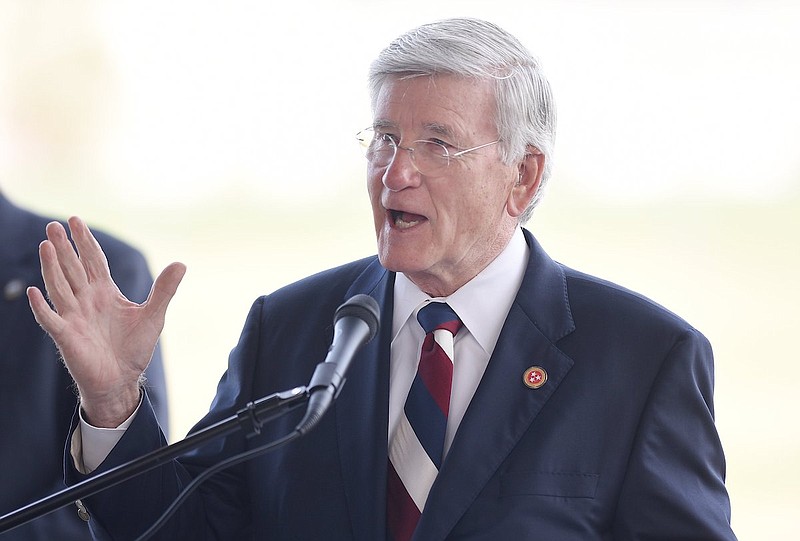NASHVILLE — Tennessee's 43-year-old anti-nepotism law would get new clarity and its first set of legal teeth to enforce the ban on state officials hiring and overseeing their relatives under a bill now moving in the General Assembly.
The effort originated in the 2021 and 2022 controversy involving then-Hamilton County District Attorney General Neal Pinkston, Pinkston's wife and his brother-in-law.
Senate State and Local Government Committee members on Tuesday unanimously approved Senate Bill 103, which is being sponsored by Sen. Todd Gardenhire, R-Chattanooga. It makes violations a misdemeanor carrying jail time of up to 11 months and 29 days and a fine of up to $2,500 upon conviction.
Gardenhire brought the measure this year following the political uproar after the Chattanooga Times Free Press reported in 2021 that Pinkston had married his chief of staff, Melydia Clewell, and put her brother, Kerry Clewell, on the public payroll as an investigator.
The bill is now being scheduled for Senate floor debate. The House companion bill, sponsored by Rep. David Hawk, R-Greeneville, has not yet been put on notice to be heard, according to the legislature's website. Gardenhire told the Times Free Press by phone that he expects Hawk will do so soon.
Pinkston at the time said his hiring practices were "both legal and ethical" and blamed the revelations on political payback from a county commissioner who had raised questions about his payroll spending.
Jason Mumpower, the state comptroller, and Herbert Slatery, then attorney general, eventually issued findings that Pinkston's situation violated the 1980 Tennessee State Employees Uniform Nepotism Act.
Pinkston made a number of efforts to come into compliance with the law, including shifting his relatives from a state-funded portion of his budget to a county-funded portion -- a transfer Gardenhire at the time referred to as a shell game.
Pinkston was defeated in a bid for re-election last year.
Gardenhire addressed State and Local Government Committee members Tuesday.
"This bill clarifies that employees of a state government entity who are compensated through funding sources other than the state are subject to the Tennessee State Employees Uniform Nepotism Policy of 1980," he said.
Moreover, Gardenhire said, "it creates criminal and civil penalties for the state employee who knowingly or intentionally violates the act."
The legislation also provides for ouster proceedings or impeachment by the legislature, he said.
Gardenhire said he held off on filing legislation during last year's session, saying he didn't want to be seen as interfering in the election.
Pinkston said by phone Tuesday evening the senator has overlooked the practice elsewhere.
"There are relatives that work with one another all over the state," Pinkston said. "You know, Gardenhire didn't care about any of that. But he cared about me. So if he wants to make that a crime, he's going to have to apply it equally across the board. Or attempt to apply it equally across the board."
Earlier Tuesday, Gardenhire told State and Local Government Committee members that the current law provides for a transfer or resignation to remedy violations.
"However," Gardenhire said, "there is no additional criminal penalty nor enforcement mechanism to punish the knowingly or intentional violation or the failure to remedy the same" with regard to state anti-nepotism laws.
Gardenhire also told the committee his legislation authorizes the Tennessee attorney general to conduct an investigation and to initiate criminal prosecutions of any judge, chancellor, judicial elected official or district attorney general whenever the state attorney general receives a report of a violation of the prohibition.
According to Mumpower's report, existing law says "no state employees who are relatives shall be placed within the same direct line of supervision whereby one relative is responsible for supervising the job performance or work activities of another relative."
Mumpower's report said a county district attorney is a position established by the state and is considered a state agency, which makes any employee in the office legally a state employee.
Contact Andy Sher at asher@timesfreepress.com.

